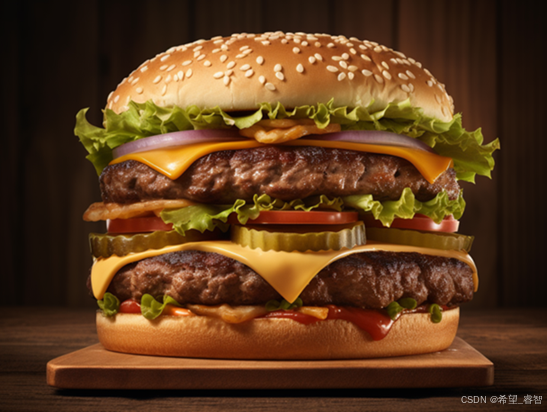概述
要在C/C++中用数组自行实现栈,我们首先需要理解栈提供的基本操作。这些操作主要包括以下5个接口。
Push:向栈中添加一个元素。
Pop:从栈中移除顶部元素,并返回该元素。
Top:查看栈顶元素但不移除它。
IsEmpty:检查栈是否为空。
Size:获取栈中元素的数量。

实现原理
如果我们用固定大小的数组来实现栈,优点是简单、快速。但这样不够灵活,容量一开始就定死了。如果数据太多就会溢出,太少又浪费内存。为了更灵活地管理内存,我们可以使用new []来动态分配数组空间,就像搭积木一样,需要多少就申请多少,甚至还可以自动扩容。
在下面栈CArrayStack的实现中,我们声明了四个成员变量,分别为:m_paData、m_nCapacity、m_nTopIndex、m_nCount。m_paData是一个动态分配的数组的地址,用来存储栈中的所有元素。m_nCapacity表示当前栈最多可以容纳多少个元素。m_nTopIndex表示当前栈顶元素的索引,也就是最后放入的那个元素的位置。m_nCount用于记录当前栈中已有的元素数量。
cpp
class CArrayStack
{
public:
CArrayStack();
~CArrayStack();
void Push(int nValue);
int Pop();
int Top();
bool IsEmpty();
int Size();
private:
void Resize();
private:
int* m_paData;
int m_nCapacity;
int m_nTopIndex;
int m_nCount;
};Push操作
进行Push操作时,首先要判断当前栈是否已经满了。如果满了,则调用扩容函数Resize,将数组容量翻倍,以容纳更多元素。然后,将栈顶指针自增,以在新位置添加新的元素。最后,更新栈中元素的数量。具体如何实现,可参考下面的示例代码。
cpp
void CArrayStack::Push(int nValue)
{
if (m_nCount == m_nCapacity)
{
Resize();
}
m_paData[++m_nTopIndex] = nValue;
m_nCount++;
}Pop操作
进行Pop操作时,首先要判断当前栈是否为空。如果为空,则直接抛出异常。然后,将栈顶指针指向的元素返回,同时将栈顶指针自减。最后,更新栈中元素的数量。具体如何实现,可参考下面的示例代码。
cpp
int CArrayStack::Pop()
{
if (IsEmpty())
{
throw underflow_error("stack is empty");
}
int nValue = m_paData[m_nTopIndex--];
m_nCount--;
return nValue;
}完整实现
Top操作、IsEmpty操作、Size操作都比较简单,这里就不再赘述了。CArrayStack类的完整实现,可参考下面的示例代码。
cpp
#include <iostream>
#include <stdexcept>
using namespace std;
CArrayStack::CArrayStack()
{
m_nCapacity = 2;
m_paData = new int[m_nCapacity];
m_nTopIndex = -1;
m_nCount = 0;
}
CArrayStack::~CArrayStack()
{
delete[] m_paData;
m_paData = NULL;
}
void CArrayStack::Push(int nValue)
{
if (m_nCount == m_nCapacity)
{
Resize();
}
m_paData[++m_nTopIndex] = nValue;
m_nCount++;
}
void CArrayStack::Resize()
{
int nNewCapacity = m_nCapacity * 2;
int* pNewArray = new int[nNewCapacity];
for (int i = 0; i < m_nCount; ++i)
{
pNewArray[i] = m_paData[i];
}
delete[] m_paData;
m_paData = pNewArray;
m_nCapacity = nNewCapacity;
}
int CArrayStack::Pop()
{
if (IsEmpty())
{
throw underflow_error("stack is empty");
}
int nValue = m_paData[m_nTopIndex--];
m_nCount--;
return nValue;
}
int CArrayStack::Top()
{
if (IsEmpty())
{
throw underflow_error("stack is empty");
}
return m_paData[m_nTopIndex];
}
bool CArrayStack::IsEmpty()
{
return m_nCount == 0;
}
int CArrayStack::Size()
{
return m_nCount;
}
int main()
{
CArrayStack s;
s.Push(66);
s.Push(77);
s.Push(88);
cout << "Top element: " << s.Top() << endl;
cout << "Pop: " << s.Pop() << endl;
cout << "Pop: " << s.Pop() << endl;
cout << "Current size: " << s.Size() << endl;
cout << "Is empty: " << (s.IsEmpty() ? "True" : "False") << endl;
return 0;
}